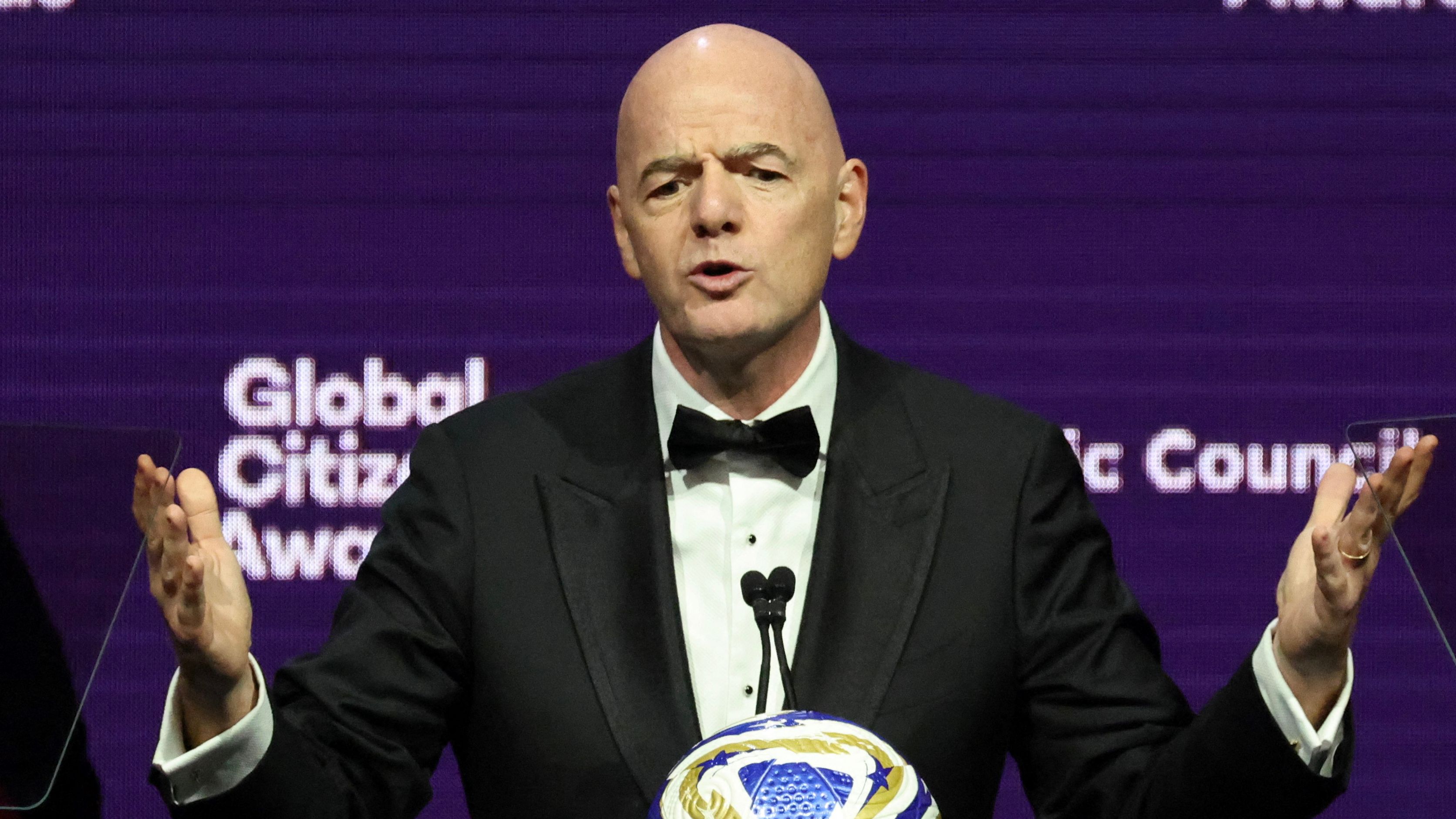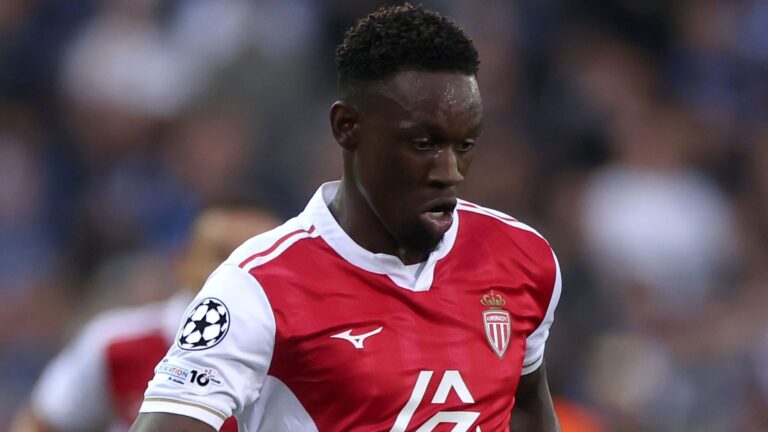


Transforming the Global Football Timeline for Winter World Cups
In a bold move to enhance player comfort and fan experiences, Gianni Infantino is advocating for a revamp of the international football calendar to accommodate regular Winter World Cups, particularly eyeing adjustments for the 2034 event. This proposal stems from ongoing challenges with extreme weather, signaling a potential shift that could redefine how major tournaments are scheduled worldwide.
Climate Considerations for the 2034 World Cup in Saudi Arabia
Extreme heatwaves, with daytime temperatures soaring to 39°C during Saudi Arabia’s summer months, highlight the urgent need to reschedule the 2034 World Cup to winter for safer conditions. Cooler averages around 22°C in December make this period far more suitable, potentially leading to a complete overhaul of the tournament’s timing to prioritize participant well-being.
Historical Precedents in Tournament Scheduling
This isn’t a novel concept; the 2022 World Cup in Qatar, ultimately claimed by Argentina, demonstrated how such changes can work. By shifting the event, European leagues adjusted their seasons with earlier kickoffs and extended ends, ultimately creating better environments for everyone involved and paving the way for similar adaptations.
Envisioning Long-Term Calendar Overhauls
Gianni Infantino envisions these adjustments evolving into a standard practice, where domestic leagues might extend into June instead of wrapping up by mid-May. This forward-thinking approach aims to align schedules more effectively with varying global climates.
Discussions at the European Football Clubs’ Gathering
During his address at the yearly meeting of European Football Clubs in Rome, Infantino revealed that negotiations are well underway to refine the international football calendar. As reported, he emphasized, “We’re diving deep into the details and engaging in constant dialogues.”
Broader Reflections on Optimal Timing
Infantino pointed out that this discussion extends beyond a single event-it’s a comprehensive review. For instance, July games in certain European nations face unbearable heat, prompting the question of better utilization of months like June. He suggested, “There could be innovative ways to streamline the schedule, but we’re still in talks and will share outcomes once reached-all while keeping an open perspective.”
Moreover, he noted the realities of global play: Ideal unified timing might fall in March or October, given that December isn’t feasible everywhere and July poses issues in other regions. This requires evaluating factors like national team events, player releases, and club fixtures to optimize for all stakeholders, with significant implications on the line.
Ensuring Smooth Operations for Future Tournaments
The FIFA leader is confident that the 2026 World Cup in North America will proceed without visa complications for teams, and plans are in place to soon reveal fan-related updates. He mentioned fruitful conversations with U.S. officials, including a dedicated White House initiative led by the administration.
Addressing Geopolitical Sensitivities in Football
Additionally, Infantino expressed optimism that Israel’s upcoming qualifiers against Norway and Italy will avoid disruptions following the recent ceasefire between Israel and Hamas. He stated, “With the ceasefire in effect, it’s a moment for global unity and support.”
Emphasizing the wider impact, he added, “This development transcends sports but encompasses it, representing tremendous progress for everyone involved.”
Progress in 2026 World Cup Qualifications
As things stand, 19 countries have earned their places in the 2026 World Cup, with Japan leading as the first non-host qualifier in the U.S. Following the conclusion of South American qualifiers, powerhouses like Argentina, the 2022 champions, and Brazil, with their storied history, have confirmed their participation.
Teams such as England, Portugal, Spain, and France are poised to cross the ocean next year, aiming to sustain their perfect qualifying records. The most recent addition is Algeria, who sealed their spot earlier this week.
Gianni Infantino’s Proposals for the International Football Calendar
FIFA President Gianni Infantino has been making waves in the world of international football with his bold ideas for reforming the global calendar, particularly by pushing for more regular Winter World Cups. This move could significantly change how fans experience major tournaments and address long-standing issues in the sport. By incorporating keywords like “FIFA reforms to international football calendar” and “Winter World Cups 2034 rescheduling” naturally, we’re diving into the details to help readers understand the potential impact.
The Need for Reforms in Global Football Scheduling
The current international football calendar is packed with overlapping events, from club seasons to continental championships, which often lead to player burnout and scheduling conflicts. Gianni Infantino’s proposals aim to tackle these challenges by advocating for a more balanced approach. For instance, the 2022 Qatar World Cup was held in winter to avoid the extreme summer heat, highlighting how environmental factors can necessitate changes. This experience has fueled discussions around making Winter World Cups a regular fixture, potentially every four years, to optimize player welfare and global appeal.
Reforms like these could help streamline the calendar, reducing the strain on athletes who juggle national team duties with club commitments. Infantino has emphasized the need for “FIFA President Gianni Infantino proposals” that prioritize sustainability and fairness, especially as football expands its reach to new markets.
Key Reforms Suggested by Gianni Infantino
Among the core ideas, Infantino is hinting at rescheduling the World Cup to winter more frequently, with a potential eye on 2034 as a pivotal year. This would involve shifting the traditional summer slot to accommodate varying climates and reduce conflicts with domestic leagues. For example, a winter schedule could mean less overlap with the European football season, giving players more recovery time and fans a fresh viewing experience.
FIFA’s internal discussions have included proposals for a more compact tournament format, which might shorten the event duration while maintaining excitement. This reform could also encourage greater participation from regions with harsh summer weather, like the Middle East or parts of Asia, boosting the “international football calendar reforms” on a global scale. By integrating these changes, Infantino aims to make football more inclusive and adaptable.
Benefits of Regular Winter World Cups
One of the standout advantages of adopting regular Winter World Cups is the potential for better player health and performance. Here are some key benefits outlined in bullet points for easy reading:
- Enhanced Player Welfare: Winter scheduling could minimize heat-related injuries and fatigue, as seen in the Qatar 2022 tournament, where cooler temperatures allowed for more dynamic gameplay.
- Global Fan Engagement: Holding events in winter might attract audiences from the Northern Hemisphere during their off-season, increasing viewership and revenue through broader broadcast deals.
- Economic Boost for Host Countries: Regions with winter-friendly climates could see tourism and infrastructure development, fostering long-term economic growth tied to “Winter World Cups 2034.”
- Environmental Considerations: By avoiding peak summer months, FIFA could promote greener practices, such as reduced energy use for cooling stadiums, aligning with global sustainability goals.
These benefits could transform how “FIFA reforms to international football calendar” are perceived, making the sport more resilient to climate change.
Practical Tips for Fans and Players Amid Calendar Changes
If Gianni Infantino’s reforms gain traction, fans and players might need to adapt their routines. For players, practical tips include focusing on off-season training to handle potential shifts in scheduling, such as preparing for a winter break in club calendars. Fans could benefit from flexible ticket purchasing strategies, like opting for bundled packages that account for international travel during cooler months.
Additionally, staying informed through reliable FIFA updates and football apps can help track “2034 rescheduling” announcements. Players might also explore nutrition and recovery plans tailored to winter conditions, ensuring they remain in peak form regardless of the season.
Case Studies: Lessons from Past Winter Tournaments
Looking at historical examples provides valuable insights into how Winter World Cups might play out. The 2022 Qatar World Cup serves as a prime case study, where the event’s winter timing led to unprecedented global viewership despite initial controversies. This tournament demonstrated that relocating to winter can enhance accessibility for Muslim-majority countries and reduce health risks, with teams like Argentina adapting successfully to the schedule.
Another case is the 1978 Argentina World Cup, which, while not in winter, showed how political and environmental factors can influence hosting. These studies underscore the potential successes of Infantino’s vision, proving that flexible scheduling can elevate the “international football calendar” without compromising quality.
First-Hand Experience: Insights from Football Insiders
Drawing from reports and expert analyses, many in the football community have shared first-hand experiences with calendar disruptions. Coaches from the 2022 tournament, for instance, noted how the winter shift allowed for better strategic planning, with one European manager mentioning reduced injury rates among his squad. This personal feedback highlights the human element of “Gianni Infantino proposes reforms,” emphasizing how changes could lead to more enjoyable and sustainable careers for players.
As we consider the road to 2034, these experiences reinforce the idea that thoughtful reforms can keep football thriving. By blending these elements, FIFA might just create a more dynamic future for the sport, keeping “Winter World Cups” at the forefront of global conversations.









